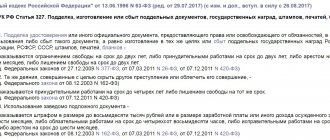The Plenum of the Supreme Court specified resolutions on cases of bribery and abuse of power
On December 24, the Plenum of the Supreme Court adopted a Resolution on amending the resolutions of the Plenum of the Supreme Court dated July 9, 2013 No. 24 “On judicial practice in cases of bribery and other corruption crimes” and dated October 16, 2009 No. 19 “On judicial practice in cases of abuse of power and abuse of power."
Chairman of the ICA “Paritet” Erlan Nazarov noted that the issues of combating corruption and its effectiveness continue to remain the most pressing problem of society and the state. He pointed out that the number of people convicted of crimes combined in Chapter. 30 of the Criminal Code of the Russian Federation, is characterized by a consistently high level. “The intensification of the state’s activities in this direction, in turn, requires a more thorough and balanced approach by the judiciary to the consideration and resolution of criminal cases of this category,” the lawyer considered.
Amendments to clarifications on bribery cases
Thus, paragraph 9 of the Resolution “On Judicial Practice in Cases of Bribery and Other Corruption Crimes” states that property transferred as a bribe or the subject of commercial bribery, property services provided or property rights granted must receive a monetary value based on the parties’ submissions. evidence, including, if necessary, taking into account the opinion of a specialist or expert.
Erlan Nazarov pointed out that clause 10 of the resolution is supplemented by the concept of “electronic wallet” as one of the tools for accumulating funds and carrying out payment transactions, which can be used for settlements with corrupt officials. In addition, this paragraph was supplemented with clarification regarding the determination of the moment of the end of the crime, when the valuables, by prior agreement of the participants in the corruption scheme, are placed in an appointed place to which the bribe-taker has access.
“The debatable position on when to consider receiving or giving a bribe to be considered over has remained unchanged. The specified point remained the same - acceptance of at least part of the transferred values, regardless of whether the relevant persons received a real opportunity to use or dispose of the values transferred to them at their own discretion,” the lawyer noted.
In addition, Erlan Nazarov noted that in the new edition of clause 12, which provides explanations on how the actions of a person directly aimed at transferring remuneration should be qualified if an official or responsible person refuses to accept a bribe, the reference to Art. 291.1 of the Criminal Code of the Russian Federation, which provides for liability for mediation in bribery.
He also indicated that from paragraph 13 of the document, which talks about the legal assessment of the actions of persons involved in receiving or giving a bribe, when these actions were carried out in the conditions of an operational operation, the subject composition of intermediaries was excluded. At the same time, according to the expert, paragraph 13 of the resolution remains in its previous wording a very controversial provision that the actions of participants in a corruption transaction committed in the context of an operational investigation are subject to qualification as a completed crime, even if the valuables are immediately confiscated by law enforcement officers .
“Despite the fact that receiving and giving a bribe (commercial bribery) are formal elements of a crime, judicial practice shows that for the most part the corruption acts in question are identified and suppressed exclusively in the course of operational investigative activities, when the reward (values) are transferred under control of intelligence officers. Consequently, in these conditions, the potential bribe-taker’s receipt of remuneration is purely symbolic, conditional in nature; he obviously does not have any opportunity to actually take possession of the received bribe, since such a prospect is not provided for within the framework of the operational procedure,” noted Erlan Nazarov.
According to the logic of the criminal law, he believes, such deliberate actions of an official directly aimed at committing a crime, if the crime was not completed due to circumstances beyond his control, should be assessed from the point of view of Part 3 of Art. 30 of the Criminal Code of the Russian Federation, as an attempted crime. “However, law enforcement officers, guided by the analyzed explanation of the Plenum of the Supreme Court, classify the actions of officials detained at the time of receiving a bribe or immediately after it as a complete composition, which is extremely difficult to agree with, since such a practice, in my opinion, contradicts such important principles of the Criminal Code , as the principle of legality, equality of citizens before the law and guilt,” the lawyer emphasized.
Partner of Feoktistov and Partners Law Firm, lawyer Ruslan Dolotov, considered that one of the key additions to the clarifications of the Plenum of the Supreme Court on bribery issues are clauses 13.1–13.5, dedicated to mediation. In particular, the RF Armed Forces provides in paragraph 13.2 an important, in its opinion, clarification that “mediation by otherwise facilitating the achievement or implementation of an agreement should be considered completed from the moment the intermediary performs one of the specified actions, regardless of the achievement or implementation of an agreement between the briber and the recipient of a bribe, as well as the person transferring or receiving the subject of commercial bribery.”
“Study of law enforcement practice under Art. 204.1 and Art. 291.1 of the Criminal Code has shown that courts periodically unreasonably increase the amount of charges due to incorrect interpretation of the criminal characteristics of these crimes. So, they charge the person with both acts: facilitating the achievement of an agreement between the bribe giver and the bribe recipient on receiving and giving a bribe, and facilitating the implementation of an agreement between them on receiving and giving a bribe,” Ruslan Dolotov shared his experience.
He noted that the legislator specifically emphasizes the alternative nature of these actions with the help of the conjunction “or” in Art. 204.1 and Art. 291.1 CC. In his opinion, in order to charge a person with both actions, the sentence must indicate which of them falls under the concept of “facilitating the achievement of an agreement” and which of them falls under the concept of “facilitating the implementation of an agreement.”
Ruslan Dolotov indicated that the dispositions of Art. 204.1 and Art. 291.1 of the Criminal Code are constructed in the same way as, for example, Part 1 of Art. 228 of the Criminal Code, which lists several alternative actions: storage, transportation, purchase of narcotic drugs. “If a person only stores such funds, he cannot be charged with all the actions specified in the disposition, since this leads to an unreasonable increase in the volume of charges,” he considered. The lawyer hopes that the clarifications contained in paragraph 13.2 of the resolution will solve this problem.
Paragraph 14 of the resolution is stated in a new wording, which states that taking into account the fact that the rules on liability for petty bribery and petty commercial bribery are special in relation to the provisions of Art. 290, 291, 204 of the Criminal Code, receiving or giving a bribe, as well as the subject of commercial bribery in an amount not exceeding 10 thousand rubles, should be qualified under Part 1 of Art. 291.2 of the Criminal Code or Part 1 of Art. 204.2 of the Criminal Code, regardless of what actions (legal or illegal), in what composition of participants (individually or by a group of persons), as well as in the presence of other qualifying signs of bribery and commercial bribery were committed. At the same time, the subject of petty bribery completely coincides with the subject of the crimes provided for in Art. 290 and 291 of the Criminal Code, and the subject of petty commercial bribery - with the subject of the crime provided for in Art. 204 CC.
Erlan Nazarov drew attention to the wording of paragraph 29 of the resolution regarding the assessment of voluntary reporting of bribery as a necessary condition for exemption from criminal liability under Art. 291, 291.2, 204, parts 1–4, 204.2 of the Criminal Code of the Russian Federation. “Previously, it was prescribed that a message made in connection with the fact that the giving of a bribe, mediation in bribery or commercial bribery became known to the authorities cannot be recognized as voluntary. The new edition proposes not to recognize a statement of a crime as such if it was received in connection with the detention of a person on suspicion of committing this crime,” the lawyer noted. In his opinion, this interpretation gives law enforcement officers who have received operational information and are aware of the planned corruption transaction, more opportunities to attract potential bribe-payers or intermediaries to expose corrupt officials through their participation in conducting operational investigations.
Erlan Nazarov considered it justified to remove from paragraph 32 of the resolution, which explains issues related to provocation of a bribe or commercial bribery, the provision that in cases where an official or person performing managerial functions in a commercial or other organization, as a result of provocation, agreed to accept illegal remuneration, the qualification of the offense under Art. 304 CC.
At the same time, the lawyer pointed out that there remains legal uncertainty in the assessment and delimitation of the actions of persons subject to liability under Art. 304 of the Criminal Code for provoking a bribe, as well as those committed in violation of the requirements of Art. 5 of the Law on the operational management of actions of law enforcement officers who provoked an official or a person performing managerial functions in a commercial or other organization to accept a bribe or the subject of commercial bribery.
“In both cases we are talking about provocation of a crime associated with the artificial formation of evidence of a criminal act. Meanwhile, in paragraph 34, it is proposed to distinguish the named actions of employees of operational services from the crime provided for in Art. 304 of the Criminal Code, but no recommendations are given on what legal assessment they are subject to,” emphasized Erlan Nazarov. In his opinion, this position of the Supreme Court is not consistent with elementary logic and is probably considered in the form of a certain indulgence, allowing law enforcement officers to instigate and then identify corruption crimes with impunity.
The lawyer suggested that an attempt to balance the balance of interests of law enforcement agencies and persons against whom operational intelligence measures are being carried out aimed at exposing corruption is clause 36.3 of the resolution. According to the explanations contained therein, the results of the operational investigation can be used in evidence in a criminal case of a corruption crime if they are received and transferred to the preliminary investigation body or court in accordance with the requirements of the law. At the same time, they must indicate the presence of intent to receive or give a bribe or the subject of commercial bribery, as well as to commit intermediary actions, which was formed independently of the activities of employees of bodies carrying out operational investigative activities. “In this regard, in order to evaluate the evidence obtained in the course of operational investigative activities, the court, regardless of the defendant’s admission of guilt, must check the legality and validity of each such operational investigative activity,” the document states. Erlan Nazarov believes that this can be characterized as a private explanation for a certain category of cases of the general requirements of criminal proceedings.
Amendments to clarifications on cases of abuse of power
The Resolution of the Plenum of the Supreme Court on judicial practice in cases of abuse of official powers and exceeding official powers proposes to expand the activities regulated by regulatory legal acts that a person may encroach on, and to add the activities of state companies, state and municipal unitary enterprises, joint-stock companies, a controlling stake which belong to the Russian Federation, constituent entities of the Russian Federation or municipalities.
Illegal request from a notary
Abuse of powers by a private notary or auditor (Article 202 of the Criminal Code) consists of committing acts “which, although directly related to the exercise of his rights and obligations, were not caused by official necessity and objectively contradicted the tasks of notarial or auditing activities, as well as those goals and the tasks for which that person has been vested with appropriate authority.”
The Supreme Court includes such actions, for example, when a notary sends an information request “for the purpose of transferring information to third parties.” Or “certifying a transaction for the alienation of real estate for the purpose of obtaining benefits and advantages for oneself or other persons or for the purpose of causing harm to other persons” - if the notary knew “that the terms of such a transaction do not correspond to the expressed will of its participants or that the participant in the transaction is not aware of it legal consequences." Another option is “the auditor submitting a knowingly false audit report.”
But at the same time, liability arises only if these acts entail socially dangerous consequences.






